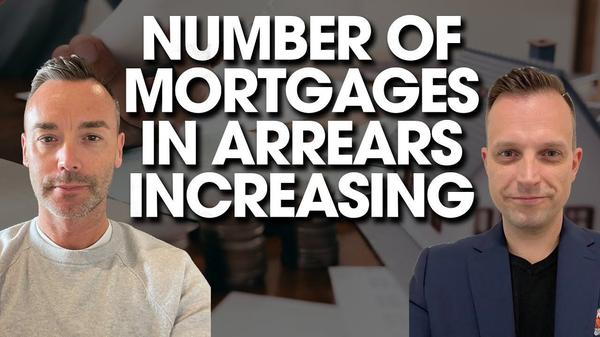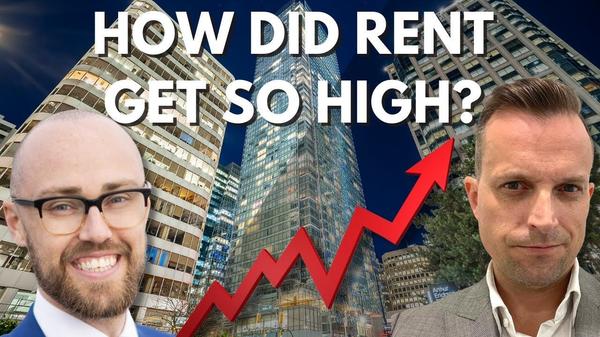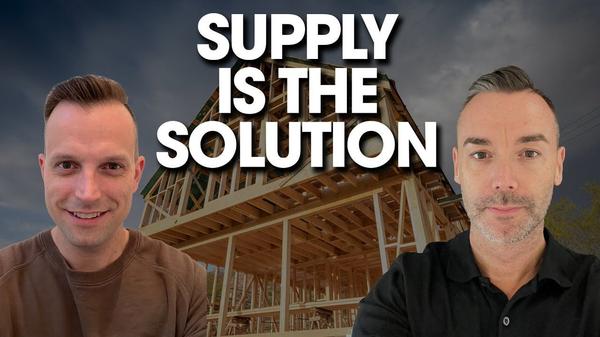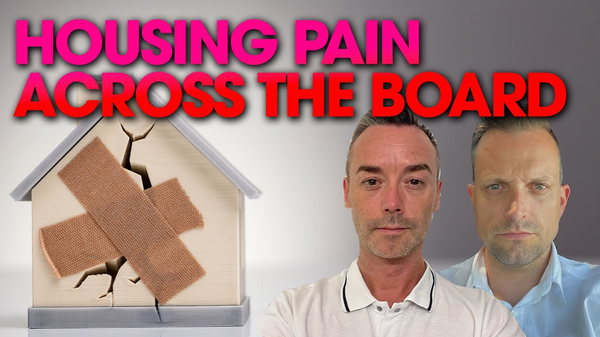High Rates For 2 Years Would Dramatically Change Housing
Inflation in Canada has been easing, with the current rate standing at 2.8%, the slowest since March 2021 and down from 3.4%. The largest factor contributing to this decline was lower gasoline prices compared to the same period last year, showing a decrease of 21.6%. However, shelter costs have risen by 4.8% year over year, driven by significantly higher mortgage interest costs (up 30.1% from the previous year) and increased rents (up 5.8% from June 2022). Moreover, grocery prices have surged by 9.1% year over year.
Analyzing the inflation trends, it has been on a downward trajectory for a year, starting from July 2022 when rates were at 3.75%. With the overnight rate at 5%, and inflation within the target band of 1-3%, the looming question becomes, does the BOC continue to raise, hold or start to cut? The Bank of Canada estimates inflation to hover around 3% for one year and gradually decrease to 2% by mid-2025, signaling that rates may very well need to remain around 5% for the next 2 years. This would dramatically alter the housing landscape.
In the housing market, housing starts have been fluctuating, with Canadian housing starts rising by 41% to 280k units in June, following a 23% decline in the previous month. Compared to the same month last year, starts were up by 4%. In British Columbia, new housing starts rose significantly by 61% to 66k units in June, showing a 17% increase from June 2022 levels. While there is an overall upward trend in housing starts, they have not fully recovered from the lows observed in mid-2020 and 2022. Additionally, despite the current level of construction, it is not keeping up with population growth.
Details of the MultiPlex Report have come to light this week, with the COV posting the report to its website. The plan, which allows for 4-8 units on most RS-1 lots, aims to create additional housing options and density. Staff recommend council add multiple dwellings as a permitted use to facilitate the construction of multiplexes, reduce the maximum size of new single-detached houses, increase the maximum size of new laneway houses, simplify laneway house regulations, reduce zoning regulations for RS residential zones, and consolidate nine RS residential zones into a new R1-1 Residential Inclusive zone, making it easier and quicker to build multifamily homes on single-family lots. This would help the private sector increasing housing via the ‘missing middle’, though any tangible outcomes from this plan won’t be known for 2-3 years at least.
Affordability remains a concern due to high interest rates. Purchasing the average priced GVRD home at $1.2 million with 20% down requires a buyer to have an annual income of $215,000 and carry no debt. This has led many potential buyers into the rental market, driving up rental prices. Canada's average rent reached a new all-time high in June at $2042, with average annual rents increasing by 20% over the last two years. In Vancouver, one-bedroom rents were up by 18% year over year and two-bedroom rents by 14% year over year.
Short-term rentals have seen a significant increase, with 4,100 active listings, up by 37% year over year. This surge comes at a time when many people are struggling to find long-term rental accommodations, creating further challenges in the rental market.
Regarding the local market update, housing prices have declined for the second consecutive month, with median prices down by $5,000 and average prices down by $12,000. Despite the year-over-year increase of 10% in sales, there is a 25% month-over-month decrease, and inventory is slowly creeping up, reaching 10,500 units. However, there is still no indication of a spike in inventory.
High interest rates are keeping people in their homes, resulting in limited housing inventory in the immediate future. The cost to build new housing is prohibitive, leading to concerns about affordability. The population continues to grow at a record pace each quarter. As interest rates are expected to remain high for an extended period, more individuals may face financial strain, and many who bought homes in the last five years may no longer qualify for their current properties.
No matter what type of housing you are in, looking for, renting, building or selling - it’s a struggle for almost everyone out there.
Categories
Recent Posts









